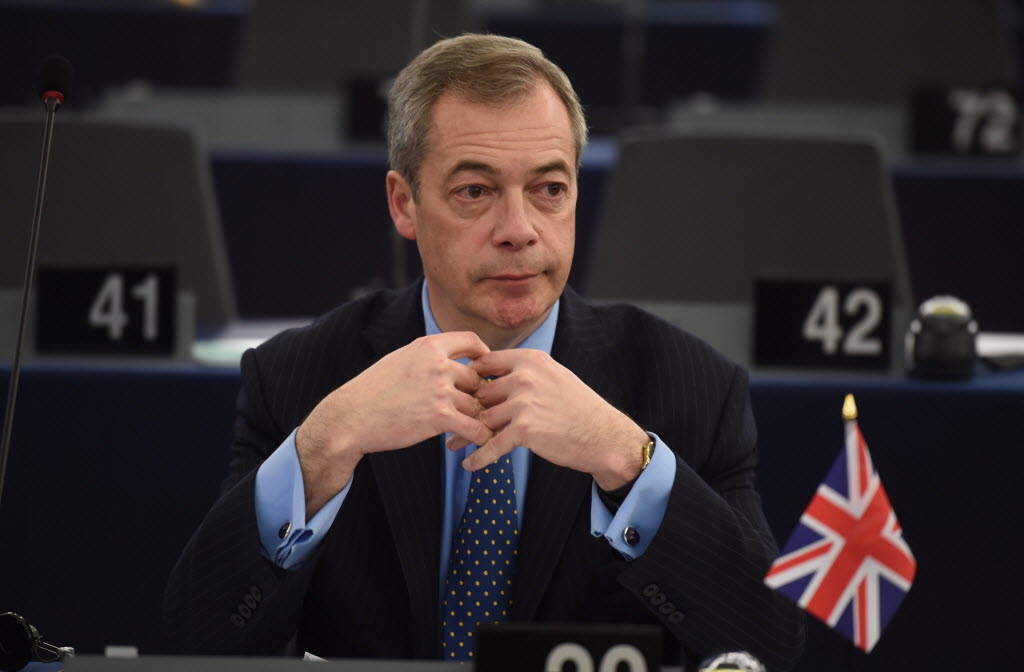Brexit supporter Nigel Farage quit as the leader of the U.K. Independence Party, saying Monday that his political ambition to see the U.K. leave the European Union had been achieved.
"I came into this struggle from business because I wanted us to be a self-governing nation, not to become a career politician," Farage said in a statement. He said that he had "done his bit" and that the party was in a "pretty good place."
Farage first became UKIP's leader in 2008.
While he was a high profile backer of the movement to take the U.K. out of the EU, he was not a member of the British Parliament. Farage represents UKIP at the European Parliament in Strasbourg, a position he has not resigned from.
Before entering politics, Farage worked as a stockbroker. He is known for his outspoken criticism of EU lawmakers and homespun campaigning style. He is the third major British political figure after Prime Minister David Cameron and former mayor Boris Johnson to stand down after last month's vote on EU membership.
It is the second time Farage has resigned. He quit as UKIP's chief in 2015 after a general election that saw the anti-immigration party sharply increase its share of the popular vote but fail to secure more than a single parliamentary seat.
Farage said that this time he would not change his mind about resigning and that he would keep his seat in Strasbourg for the remainder of his two-year term so he could take part in the U.K.'s negotiations with the EU to leave the bloc.
He described UKIP as a turkey that voted for Christmas, a reference to the fact that the party may have less relevance now that its major reason for existing — leaving the EU — was on the verge of coming true.
His resignation comes as the ruling Conservative Party has started the process of choosing a prime minister to succeed Cameron, who stepped down following his failure to win the vote over the U.K.'s membership of the EU. Longtime interior minister Theresa May is seen as the favorite to win the job.
But the process to leave the EU is not straightforward.
Cameron is insisting that the next prime minister will need to trigger Article 50, the specific EU legislation that allows a departing member to begin formal exit negotiations that would be expected to last about two years.
However, a law firm launched a legal challenge to that claim Monday, arguing that the U.K.'s parliamentary system requires that members of Parliament must first be allowed to rule on whether to invoke Article 50 before any new prime minister can. Mishcon de Reya, the law firm, maintains that because the referendum was not legally binding only parliamentarians can approve or reject triggering Article 50. Mishcon de Reya said it was acting on behalf of a group of anonymous clients.
During the referendum campaign, a majority of U.K. lawmakers opposed leaving the EU. Farage said in his resignation speech that the next prime minister should be one who supported Brexit. May wanted the U.K. to stay in the alliance.

![farage_ukip [image : 86668184]](http://www.gannett-cdn.com/media/2016/07/04/USATODAY/USATODAY/636032065687744712-AX233-048A-9.JPG)

